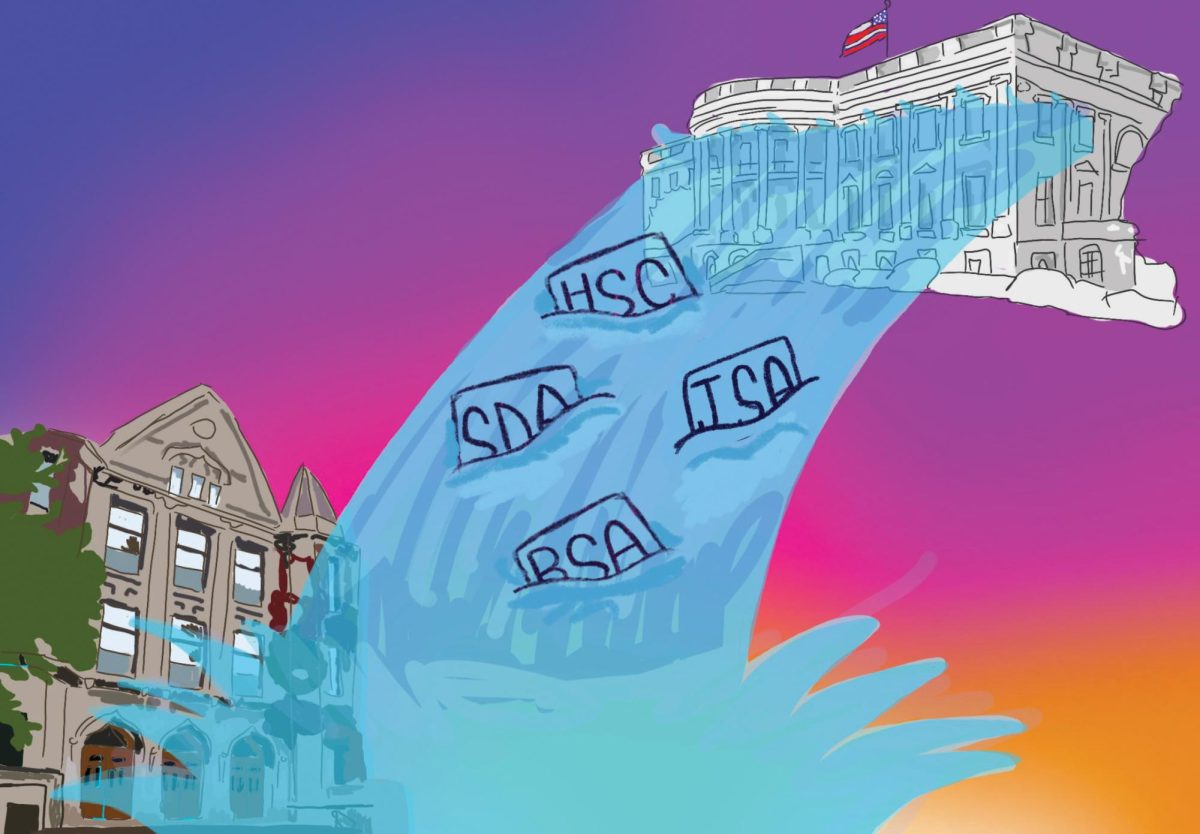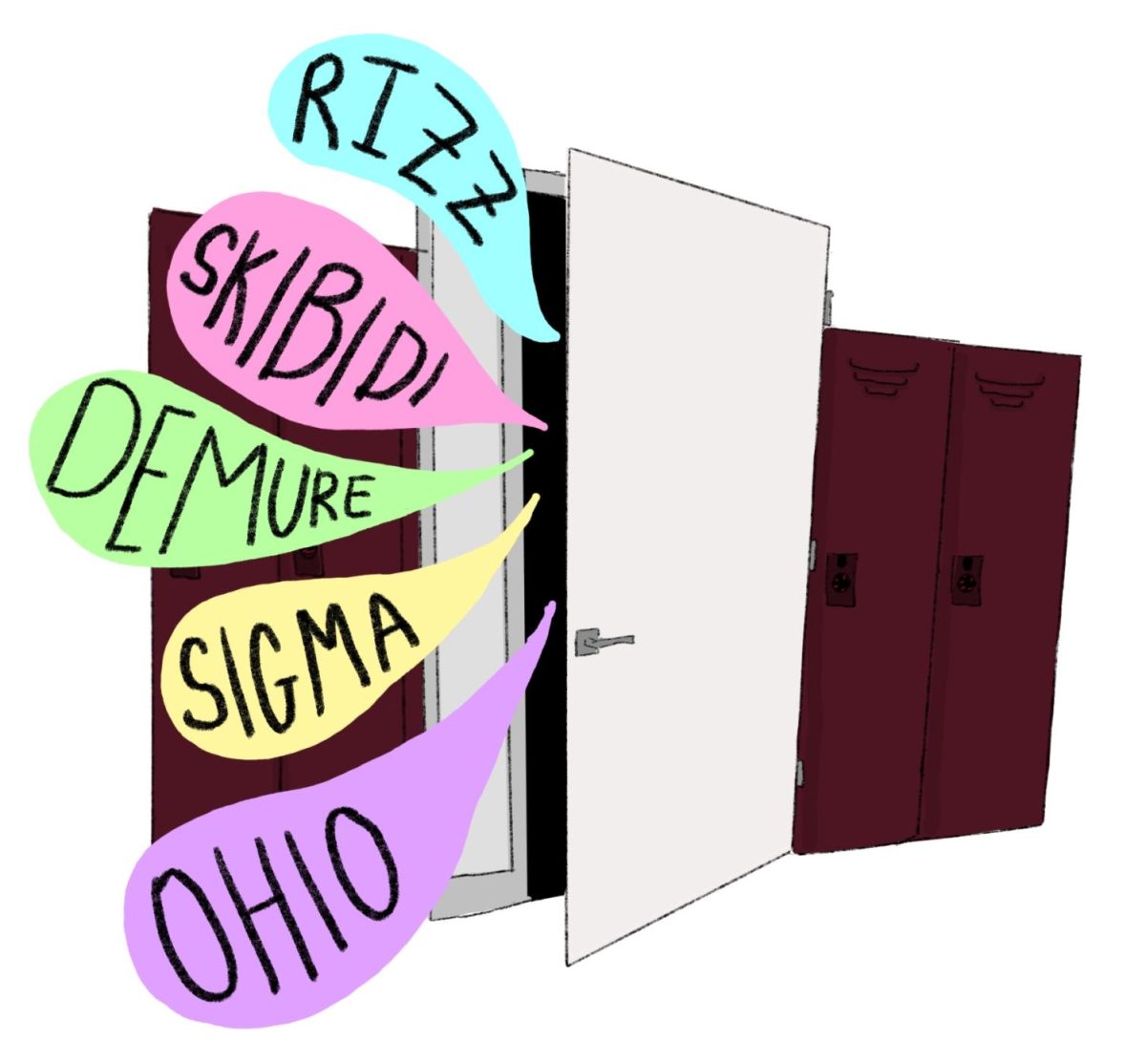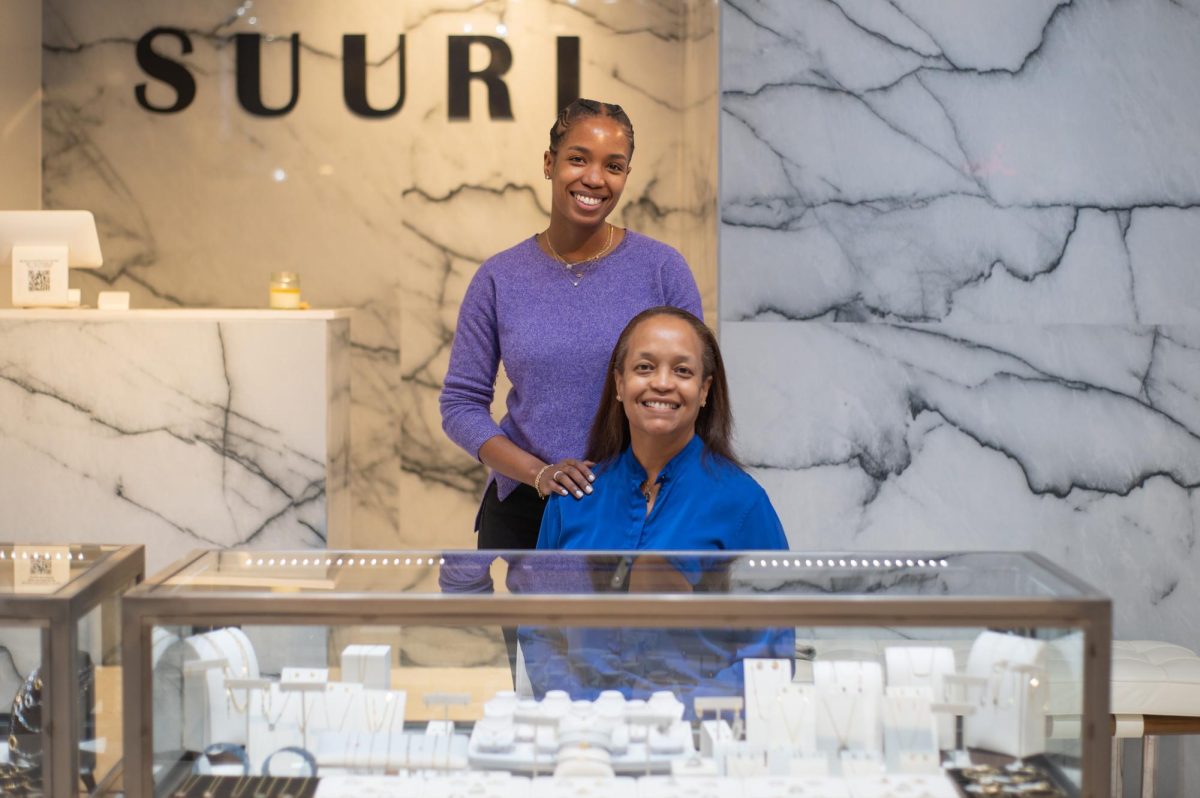On Sept. 4, the entire high school gathered for the yearly opening assembly, consisting of the routine announcements, speeches and applause. However, one word, said by Principal Martin Woods, made every student — from the nervous ninth graders to the nostalgic seniors — break into laughter, or at least smile a little: demure.
While pop culture terms like these are assumed to be reserved solely for younger generations, they are often used in classrooms by faculty to bring about humor — a method that often works.
After Mr. Woods’ speech, the mood felt lighter in the assembly hall, resulting from the use of just one word. His intention with using this word was spelled out in three silver floating balloons to the right of the stage — to make his students feel joy.
“Because I’m on social media all the time, and because I’m not far removed from the language, I actually use some of it,” Mr. Woods said. “Now, I’m not going around saying ‘demure’ all the time, but I thought y’all would enjoy that. So, I decided to just infuse that in my opening assembly remarks.”
He emphasized the importance of understanding your audience, and how using these terms can help increase engagement.
“It’s just important that you speak the language of the people that you’re standing in front of,” Mr. Woods said.
When Mr. Woods was a teacher, he often used similar techniques.
“Even if I were in the classroom when I was a teacher, I would make sure that I was intentionally, you know, being aware — either culturally aware or just aware of who’s in front of me,” he said. “But I just call it reading the room.”
Similar to Mr. Woods, English teacher Ian Taylor uses pop culture terms in his classroom. He uses these words because it lightens the mood of his students, and he finds their reactions to be humorous.
“I think they feel like their world has been invaded, or like the roof has been blown off some room they thought they were in privately,” Mr. Taylor said. “And that’s funny to me, because they think that there should be no way I know it. If I ever use slang, I’m not using it seriously.”
While Mr. Woods is mainly exposed to this language through social media, Mr. Taylor is exposed to it by spending much of his time with teenagers, both his students and his children alike. As an English teacher, he is also interested in understanding language itself.
“I do have two kids that are in high school, and I also have spent my career working with teenagers. So I spend every day of my life essentially with teenagers,” Mr. Taylor said. “So I’m going to hear it and I have a longer view of slang and so notice when things change, and I’m interested in language a little bit — like what people are saying and what those things they’re saying mean.”
While students may appear to seem shocked or judgmental of adults when they use pop culture terms, many find some humor in the interactions. Senior Marcus Wolfe, a student in Mr. Taylor’s class, shares this view.
“It makes the class more interactive I guess, just more modernized,” Marcus said. “I think I just have more fun with those teachers, because they are easier to talk to, so, yeah, I like it.”
Sophomore Samara Grossman feels similarly, especially regarding Mr. Woods’ language at the assembly.
“I just thought it was a good way to connect with students and get people to pay attention — to use language that they are familiar with and think would be funny,” Samara said.
Ultimately, the use of pop culture terms in the school environment is relished by both students and adults.
Mr. Woods said, “I enjoy seeing the reaction, and I think they enjoy it, too.”






















































